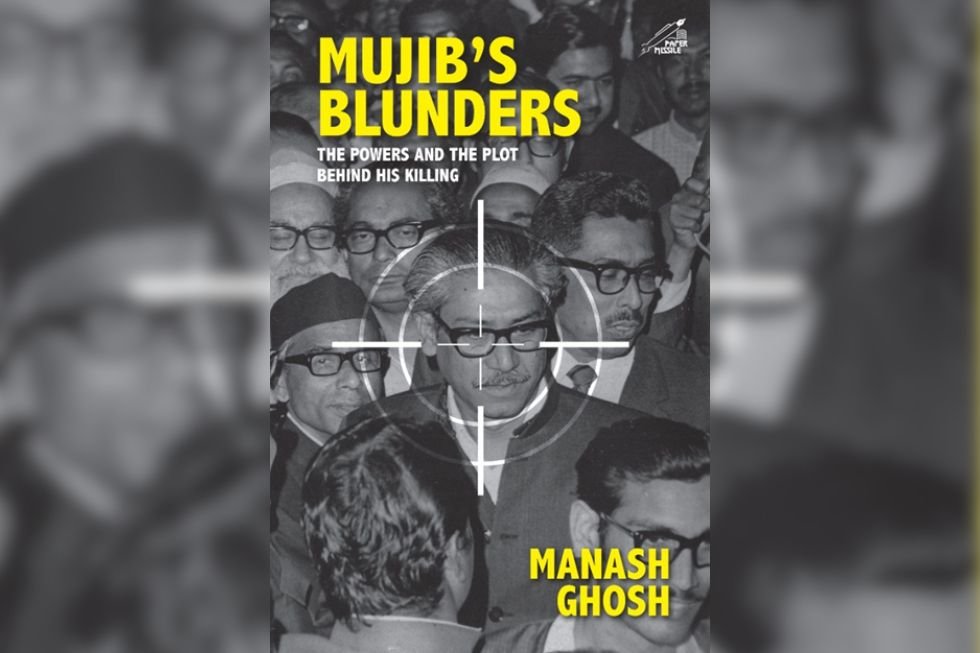When a long-oppressed, exploited and persecuted people gain independence of their land through an armed struggle by shedding a ‘sea of blood and tears,’ it brings in its wake a series of debilitating traumas whose baneful effects can sometimes get so deeply embedded in their psyche that they can hinder people from enjoying their new-found freedom and independence, which then almost becomes meaningless.
Bangladesh and its valiant people were in such a predicament for over three and a half years after their liberation when the fruits of freedom and independence almost eluded them and chaos and lawlessness reigned supreme. This raised doubts amongst many whether this was the summum bonum (outcome) of what they had hoped and fought for to achieve. Worse, it prepared the ground for the hatching of deadly conspiracies against those very leaders and people who were instrumental in bringing freedom, dignity, respect and opportunities to a people who had never enjoyed or experienced them before.
The case of Bangladesh was unique for certain ministers and senior officials of the government-in-exile in Mujibnagar, along with numerous sector commanders of the Mukti Bahini, were not prepared for such swift liberation of their land. They had never ever anticipated that the Pakistan military’s Eastern Command would surrender as early as on the 13th day of the Indo-Pak War. That the Pakistan military’s morale would reach its nadir and their soldiers would lose their will to fight and not defend Dacca—despite having 25,000 troops deployed in and around the city with ample fire power and armaments at their disposal to last several weeks—had seemed an impossibility to them.
The idea that the Pakistan military would meekly surrender was considered highly improbable due to another reason—the perceived aura of invincibility surrounding it. After all, there was a belief that the Pakistani military, in comparison to its Indian counterpart, was a superior and formidable fighting force with a rich heritage, fuelling expectations that it would staunchly defend Dacca and put up a fierce final stand, come what may.
In fact, following the outbreak of the full-fledged war on 3 December 1971, some of the sector and sub-sector commanders I had met told me that the Pakistan military machine would put up a staunch resistance to the Indian military’s swift advance towards Dacca. They thought that the Pakistan military would throw in all its might and resources to defend Dacca at all costs just as the Russians had done at Stalingrad. Moreover, the Indian Army, they believed, did not have the required wherewithal to make rapid advances towards Dacca as it would have to cross three mighty rivers (including the Meghna and Madhumati), in addition to numerous smaller waterways, giant water bodies and rivulets along the way.
Thus, the general belief that reverberated like a silent murmur was that the Indian Army would get severely bogged down by fierce, intense and prolonged battles while overcoming the heavily defended Pakistani fortifications, which would further significantly slow down the pace of its advance toward Dacca.
But their perception of the Indian generals’ strategic knowledge, depth and capabilities was flawed as many of them had not seen the operational virtuosity of commanders of the Indian Army—like Lieutenant General Sagat Singh, Major Generals Ian Cardozo, Nagra, Klerr and Lachchman Singh to name a few—leading their men from the front. And those who had seen them and had worked in close coordination with them in Sylhet and Comilla Sectors, like Majors Khaled Mosharraf and Chittaranjan Dutta, had just the opposite view; they were of the firm belief that the Indians would suddenly take the Pakistanis by surprise by making audacious moves, including airborne and heliborne operations, which would stun the Pakistani General Headquarter (GHQ).
[Niyogi Books has given Fair Observer permission to publish this excerpt from Mujib’s Blunder, Manash Ghosh, Niyogi Books, 2025.]
The views expressed in this article are the author’s own and do not necessarily reflect Fair Observer’s editorial policy.
Support Fair Observer
We rely on your support for our independence, diversity and quality.
For more than 10 years, Fair Observer has been free, fair and independent. No billionaire owns us, no advertisers control us. We are a reader-supported nonprofit. Unlike many other publications, we keep our content free for readers regardless of where they live or whether they can afford to pay. We have no paywalls and no ads.
In the post-truth era of fake news, echo chambers and filter bubbles, we publish a plurality of perspectives from around the world. Anyone can publish with us, but everyone goes through a rigorous editorial process. So, you get fact-checked, well-reasoned content instead of noise.
We publish 3,000+ voices from 90+ countries. We also conduct education and training programs
on subjects ranging from digital media and journalism to writing and critical thinking. This
doesn’t come cheap. Servers, editors, trainers and web developers cost
money.
Please consider supporting us on a regular basis as a recurring donor or a
sustaining member.
Will you support FO’s journalism?
We rely on your support for our independence, diversity and quality.





Comment